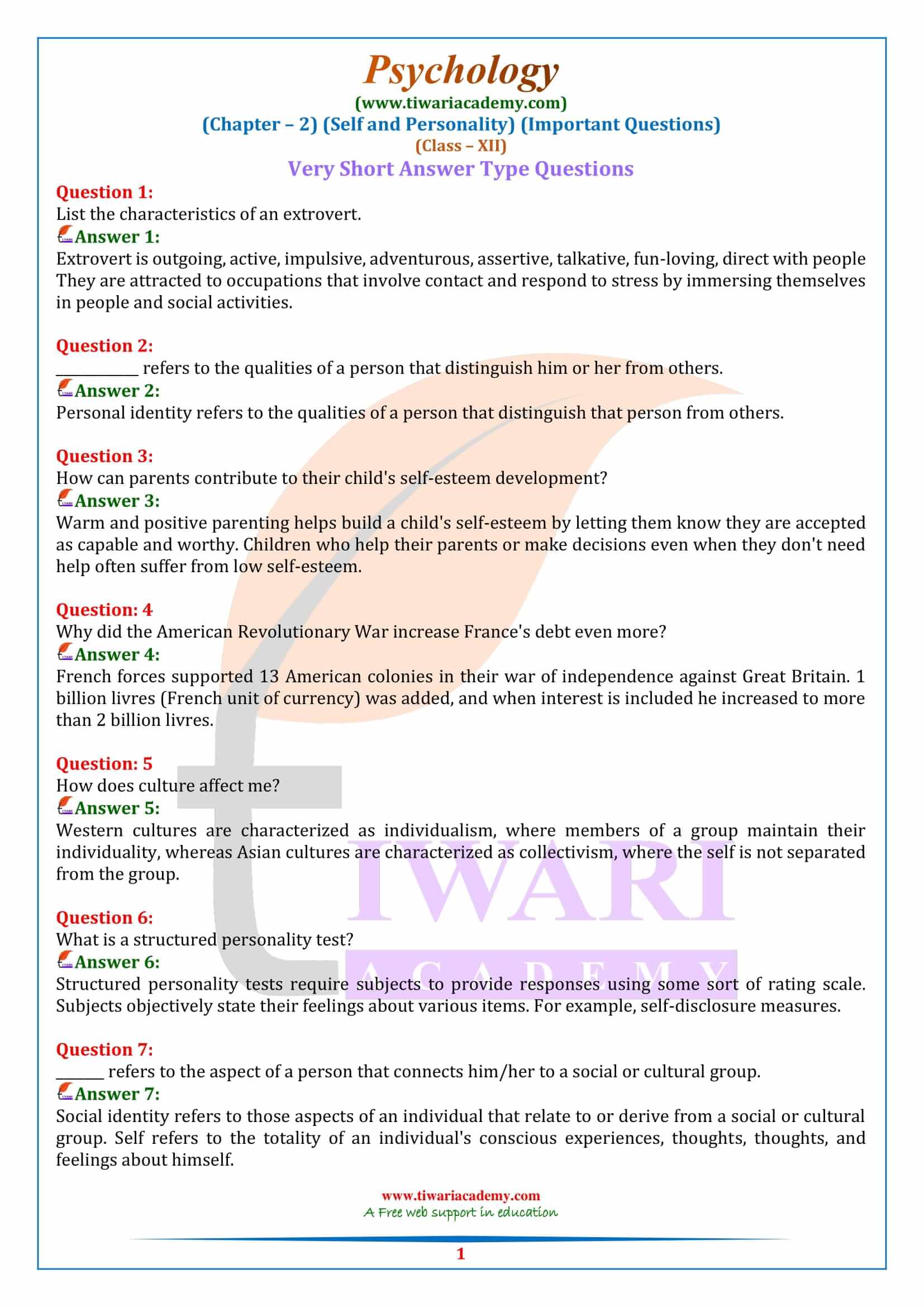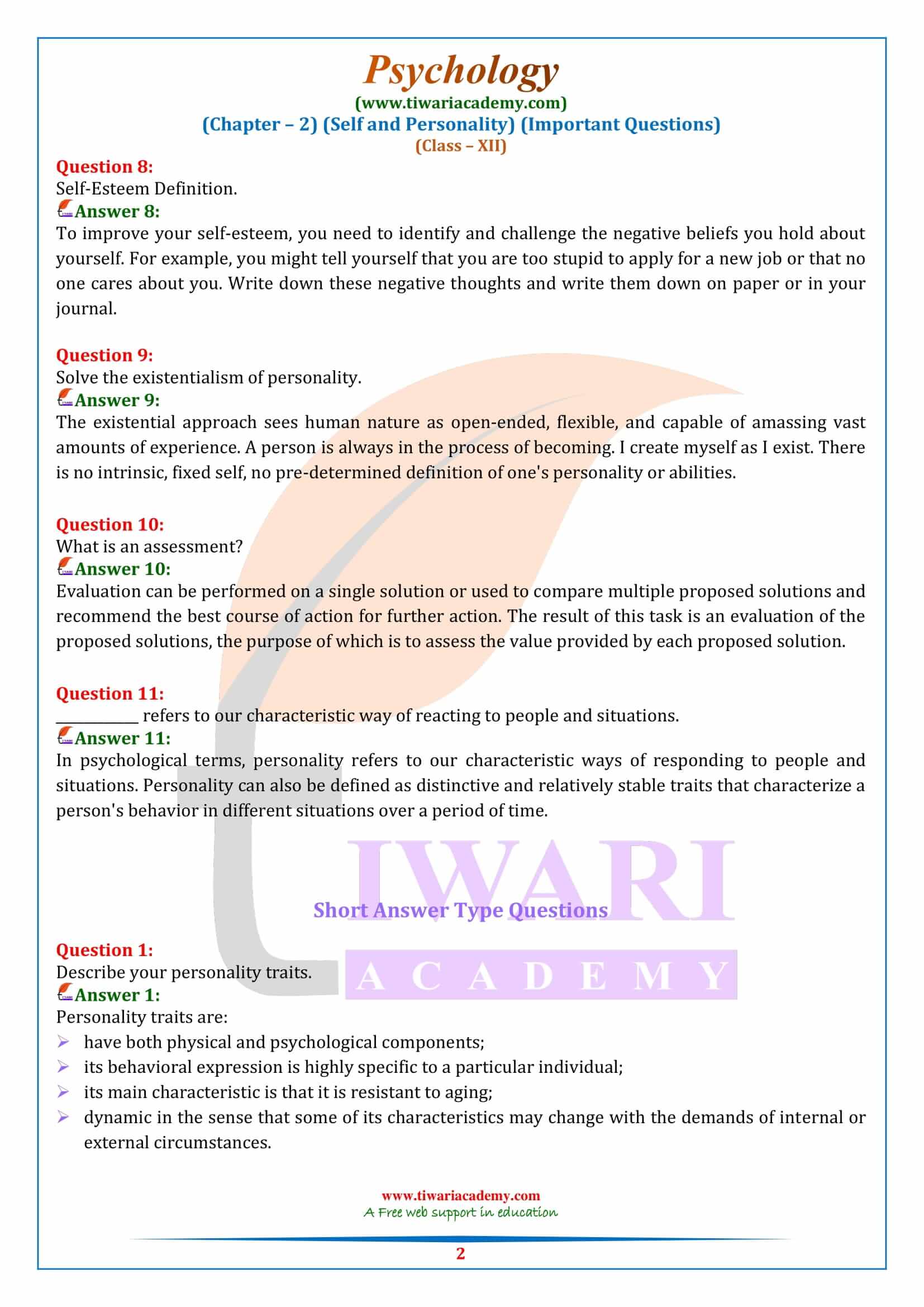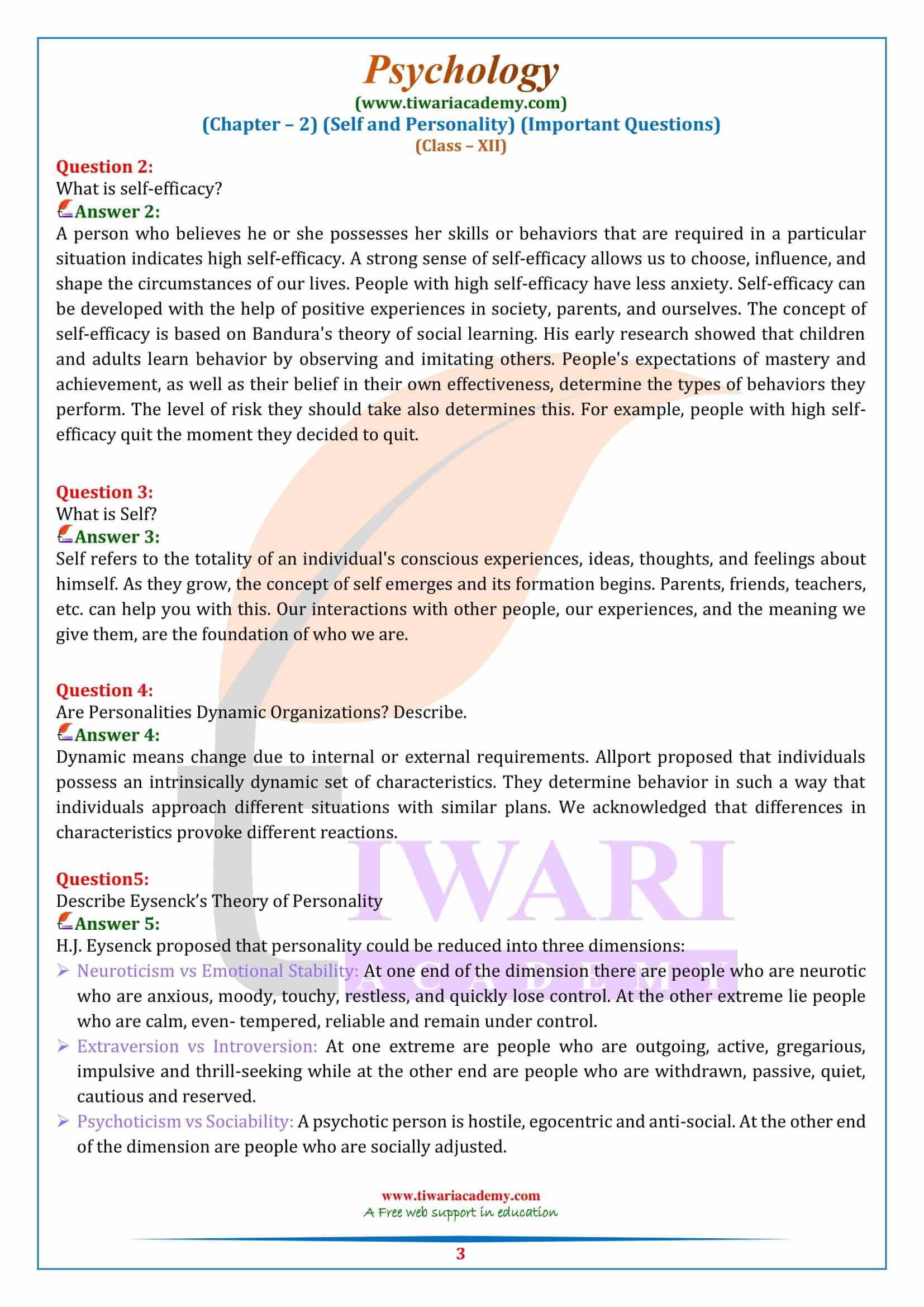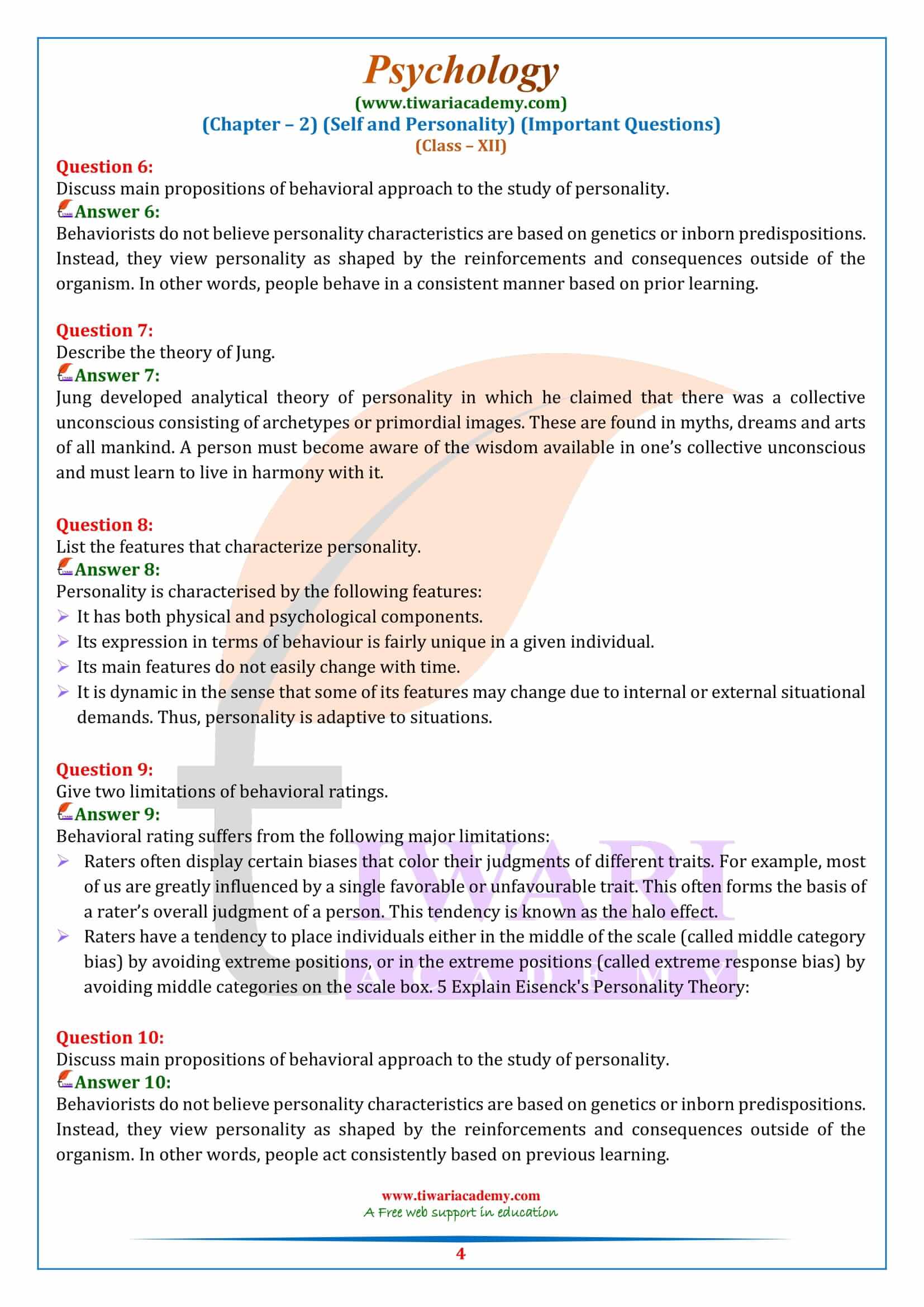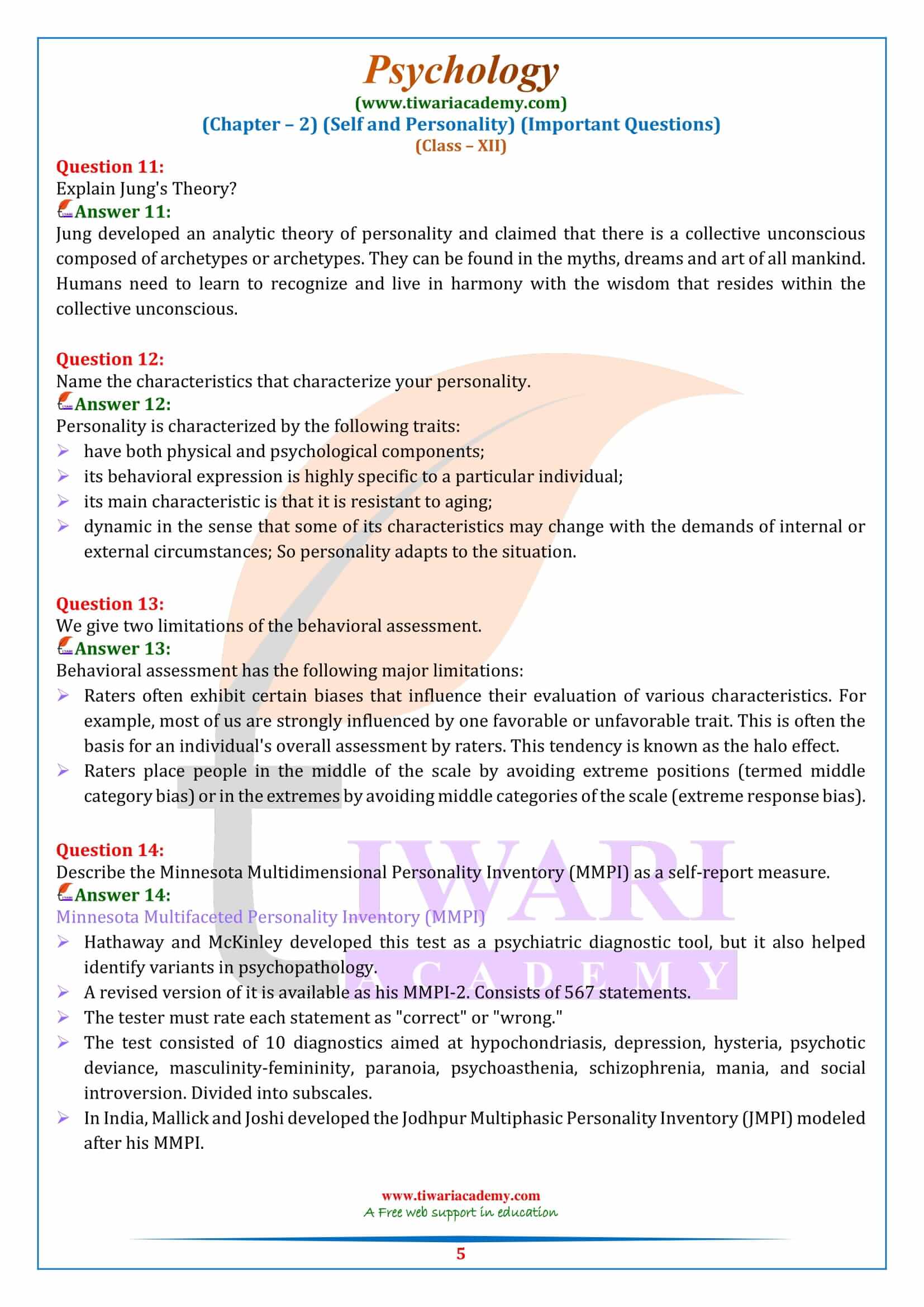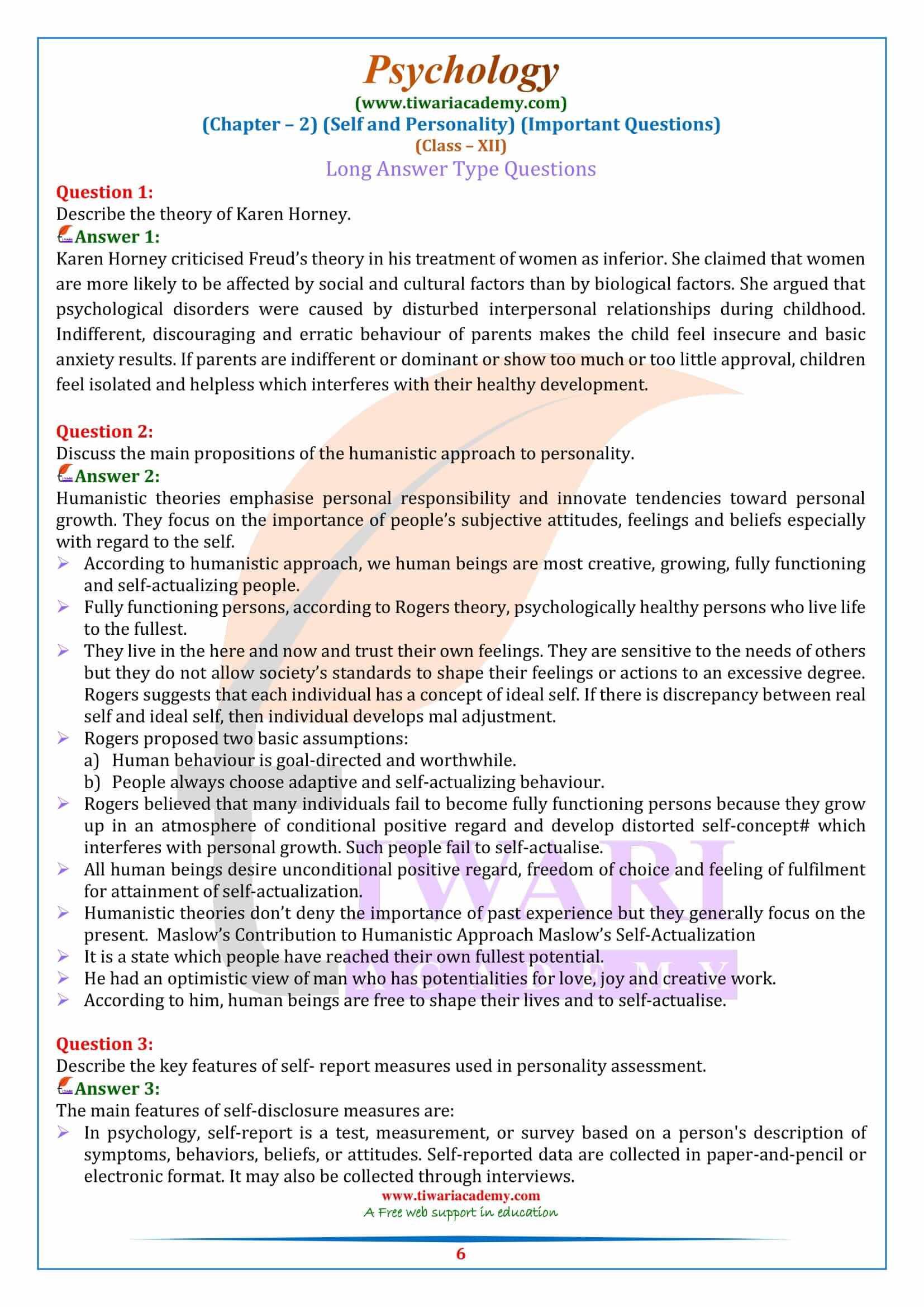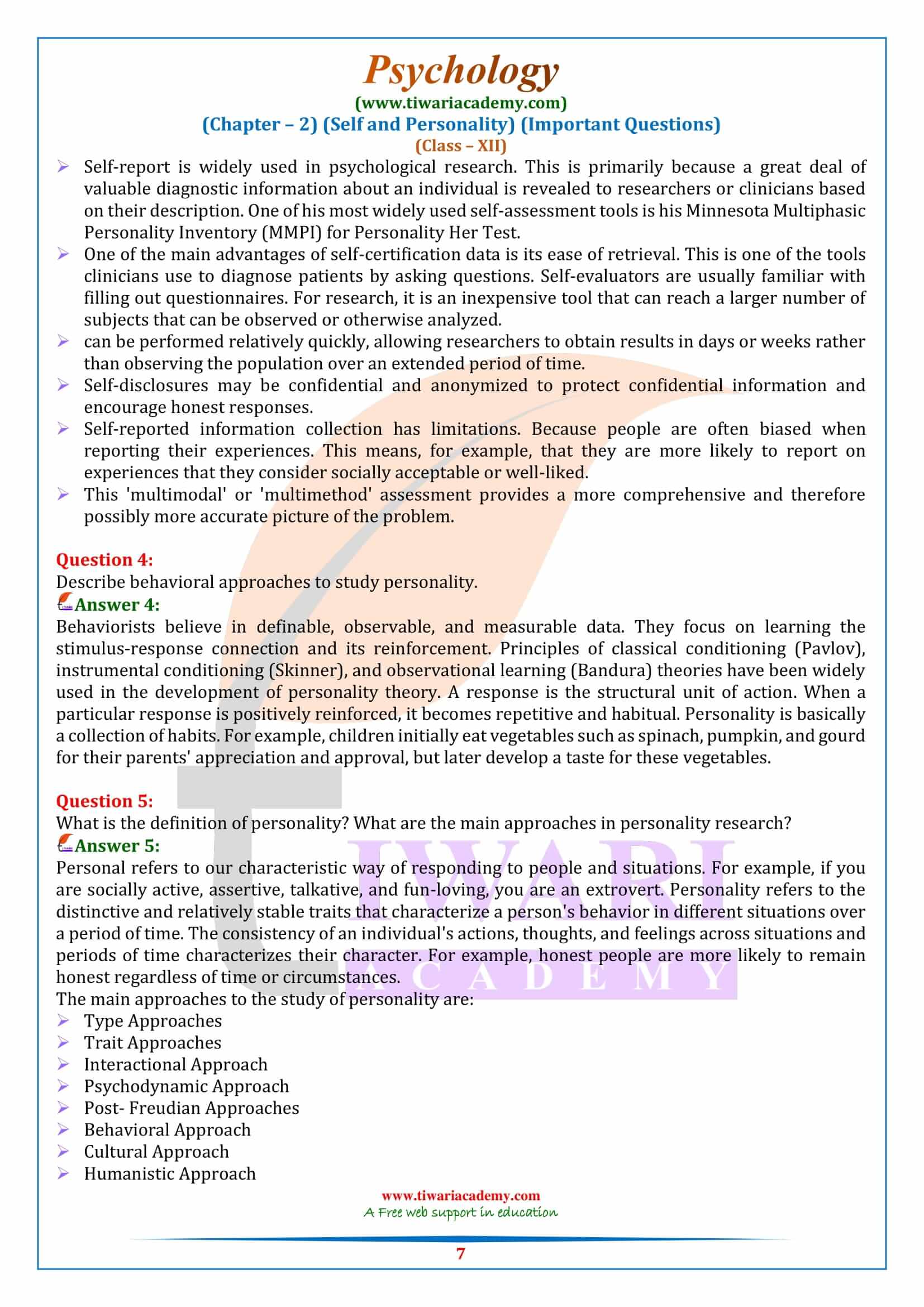Class 12 Psychology Chapter 2 Important Questions of Self and Personality in English Medium updated for new session 2025-26. Get here Class 12 Psychology Chapter 2 Extra Questions with full explanation in the form of very short, short and long answer type questions.
Class 12 Psychology Chapter 2 Important Questions
Class 12 Psychology Chapter 2 Extra Questions Answers
What is an assessment?
Evaluation can be performed on a single solution or used to compare multiple proposed solutions and recommend the best course of action for further action. The result of this task is an evaluation of the proposed solutions, the purpose of which is to assess the value provided by each proposed solution.
Describe your personality traits.
Personality traits are:
- have both physical and psychological components;
- its behavioral expression is highly specific to a particular individual;
- its main characteristic is that it is resistant to aging;
- dynamic in the sense that some of its characteristics may change with the demands of internal or external circumstances.
What is self-efficacy?
A person who believes he or she possesses her skills or behaviors that are required in a particular situation indicates high self-efficacy. A strong sense of self-efficacy allows us to choose, influence, and shape the circumstances of our lives. People with high self-efficacy have less anxiety. Self-efficacy can be developed with the help of positive experiences in society, parents, and ourselves.
The concept of self-efficacy is based on Bandura’s theory of social learning. His early research showed that children and adults learn behavior by observing and imitating others. People’s expectations of mastery and achievement, as well as their belief in their own effectiveness, determine the types of behaviors they perform. The level of risk they should take also determines this. For example, people with high self-efficacy quit the moment they decided to quit.
What is Self?
Self refers to the totality of an individual’s conscious experiences, ideas, thoughts, and feelings about himself. As they grow, the concept of self emerges and its formation begins. Parents, friends, teachers, etc. can help you with this. Our interactions with other people, our experiences, and the meaning we give them, are the foundation of who we are.
Are Personalities Dynamic Organizations? Describe.
Dynamic means change due to internal or external requirements. Allport proposed that individuals possess an intrinsically dynamic set of characteristics. They determine behavior in such a way that individuals approach different situations with similar plans. We acknowledged that differences in characteristics provoke different reactions.
Describe Eysenck’s Theory of Personality.
H.J. Eysenck proposed that personality could be reduced into three dimensions:
- Neuroticism vs Emotional Stability: At one end of the dimension there are people who are neurotic who are anxious, moody, touchy, restless, and quickly lose control. At the other extreme lie people who are calm, even- tempered, reliable and remain under control.
- Extraversion vs Introversion: At one extreme are people who are outgoing, active, gregarious, impulsive and thrill-seeking while at the other end are people who are withdrawn, passive, quiet, cautious and reserved.
- Psychoticism vs Sociability: A psychotic person is hostile, egocentric and anti-social. At the other end of the dimension are people who are socially adjusted.
Describe the theory of Jung.
Jung developed analytical theory of personality in which he claimed that there was a collective unconscious consisting of archetypes or primordial images. These are found in myths, dreams and arts of all mankind. A person must become aware of the wisdom available in one’s collective unconscious and must learn to live in harmony with it.
